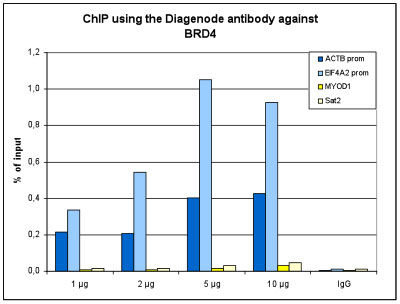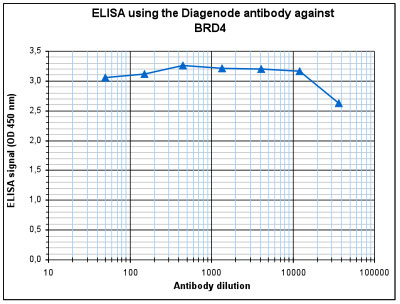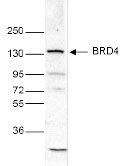BRD4 (UniProt/Swiss-Prot entry O60885) is a chromatin reader protein that binds acetylated histones. It remains associated with acetylated chromatin throughout the entire cell cycle and provides epigenetic memory for gene transcription by preserving an acetylated chromatin status. As such, it plays a key role in the transmission of epigenetic memory across cell divisions. BRD4 promotes phosphorylation of Ser-2 of the C-terminal domain (CTD) of RNA polymerase II and plays a key role in regulating the transcription of signal-inducible genes. It has been implicated in a translocation of chromosome 19 which causes an upper respiratory tract carcinoma.
-
产品
剪切技术
Tagmentation
Chromatin studies
DNA methylation
- Bisulfite conversion
- Methylated DNA Immunoprecipitation
- Methylbinding domain protein
- Hydroxymethylated DNA Immunoprecipitation
Genome editing (CRISPR/Cas9)
Antibodies
- All antibodies
- Sample size antibodies
- ChIP-seq grade antibodies
- ChIP-grade antibodies
- Western Blot Antibodies
- DNA modifications
- RNA modifications
- CRISPR/Cas9 antibodies
- CUT&Tag Antibodies
NGS Library preparation
- Library preparation for ChIP-seq
- Library preparation for RNA sequencing
- Library preparation for DNA sequencing
Automation
Reagents
- 服务
- 研究领域
- 资源
- 公司
-
联系人








